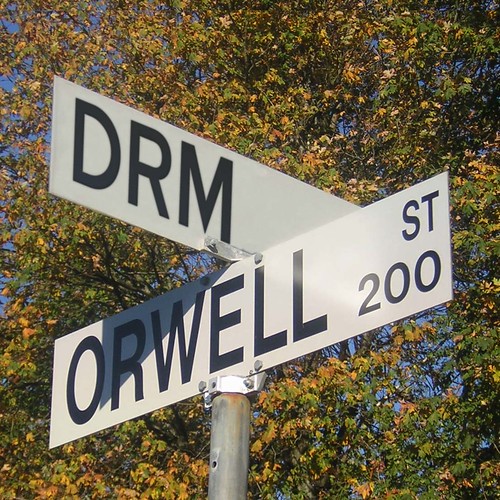I was sitting at a restaurant with Mick Liubinskas of Pollenizer the other week, who I regard as one of the best minds in the Australian tech scene. Mick in a previous life used to run marketing at Kazaa, which was the music-industry’s anti-Christ during the early 2000s. Kazaa was one of the higher profile peer-to-peer technologies that made the distribution of music so widespread on the Internet.
I said to Mick how one of the things that plagues my thinking is trying to work out the future business models for content. Naturally, we ended up talking about the music industry and he explained to me the concept of Soft DRM which he thought was one avenue for the future but which the record labels rejected at the time.
DRM or Digital Rights Management is the attempt by companies to control the distribution of digital content. Hard DRM places control over access, copying and distribution Рwhile soft DRM does not prohibit unauthorised actions but merely monitors a user’s interaction with the content.
The basic difference, is that Hard DRM protects copyrights by preventing unauthorised actions before the fact, while Soft DRM protects copyrights by giving copyright owners information about infringing uses after the fact.
As I questioned Mick on this, he compared it to us sitting in that restaurant. What’s stopping either of us from getting up and not paying the bill? The restaurant let’s us sit, serves us food – and only at the end do we pay for the service.
Hard DRM is not congruent with our society
Part of the music industry’s problem is that they’ve focused too much on Hard DRM. And that’s wrong. They could get away with it in the past because that’s how the world worked with controlled distribution lines, but now that world no longer exists with the uncontrollable Internet.
In a restaurant, like any other service industry, the risk that you don’t get paid is real but not big enough to prevent it from operating. Our social conventions are what make us pay that bill, even though we have the ability to avoid it.
To insist on the Hard DRM approach, is going against how the rest of the western world works. Our society is philosophically based on the principle of innocent until proven guilty. Likewise, you pay after a service has been rendered – and you pay for something that has unique value (only scarcity is rewarded). What existed with the media world was unique over any other industry, but unique purely due to technological limitations, not because it was genuinely better.
The record companies (not the artists) are hurting
Artists practically sell their soul to get a record deal, and make little money from the actual albums themselves. This change for music is really a threat to the century-old record company model, of which the Internet has broken their distribution power and their marketing ability is now dwarfed by the potential of social media.
Instead of reinventing themselves, they wasted time by persisting with an old model that worked in the industrial age. They should have been reflecting on what value people will pay for, and working out the things that are better than free. Unfortunately, the entire content business – movies, television, radio, magazines, newspapers, books and the rest – have made similar mistakes.
The Internet is transforming our world and every object in our lives one day will be connected. In some ways, the great change brought about by the Internet is actually a step back to how things used to be (like it is for music where the record model was an anomaly in our history). Even the concept of a “nation state” is a 20th century experiment pushed after the first world war, where for our entire history prior to that, our world was governed by independent cities or empires that governed multiple ethnic nations – the Internet is breaking down the nation-state concept and good riddance because its complicated our lives.
We need to clear the white board and start fresh. The Internet is only going to get more entrenched in our world, so we must re-engineer our views of the world to embrace it. With content, distribution was one of the biggest barriers to those industries to get into, and now it has been obliterated. Business models can no longer rely on that.
We should not let the old world drive our strategies for business because the dynamics have changed completely. If you are looking to defend yourself against an oncoming army – stop polishing the sword and start looking for the bullets to put in the machine gun.




